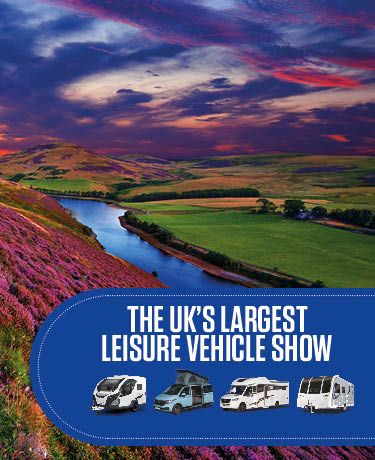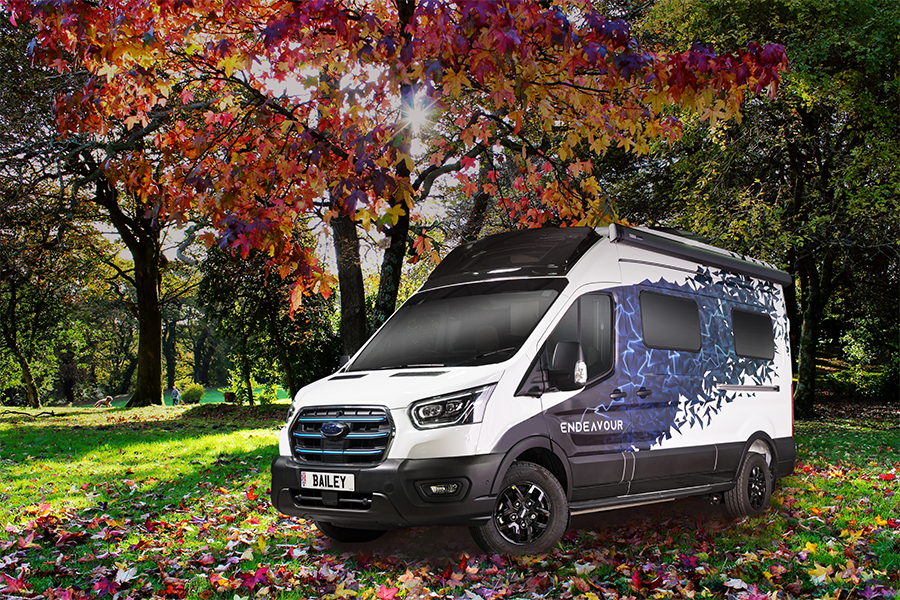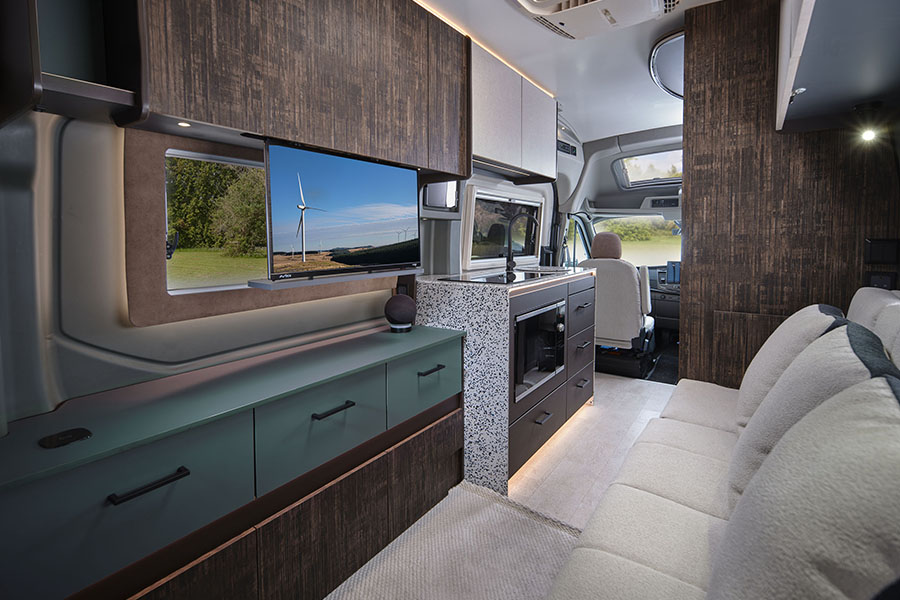
The Endeavour EV is a fully operational panel van conversion developed in partnership with Ford Pro and is based upon their E-Transit platform. Although it is not intended for this motorhome to go into production, it does show a potential direction of travel for leisure vehicle design in future.
This vehicle has been developed very much with sustainability in mind with all services and appliances used in the Endeavour EV are being fully electric, meaning no fossil fuels are required to power the motorhome when in use. Low carbon recycled materials, particularly in the work surfaces, upholstery fabrics and furniture handles, have also been used throughout its construction.
In addition, the design includes a number of exciting new features not currently seen in existing Bailey leisure vehicle ranges, including an adaptable living space with working, lounging and sleeping modes plus a voice controlled lighting system – both of which offer owners the potential to customize their vehicle.

Bailey of Bristol’s aim is to become a NetZero business by 2050, and its participation in this project is the latest in a series of initiatives that the company has undertaken to make it a more sustainable business moving forward.
Thus far these initiatives have largely focused upon the decarbonization of the company’s day to day operations and include the installation of new solar panel and low energy lighting systems, switching to the use of renewable energy supplies and introducing new waste reduction and recycling programmes – more information on which can be found here.
The next phase of the company’s road map to NetZero is to focus on the products themselves. A ‘cradle to grave’ analysis of a caravan or motorhome’s carbon footprint* shows that over half of the total overall emissions are generated when the sold leisure vehicle is in use. A small amount of this total will be the energy needed to power and heat the vehicle when on site but the majority will be created through the combustion of the fuel required to drive or tow it on the road.
Design-wise the company can help reduce emissions generated this way by manufacturing lighter and more aerodynamic products, but ultimately the largest savings long term will come from the use of alternative power generation sources than the traditional internal combustion engine.
Bailey therefore believes that now is the right time to begin working on a project such as the Endeavour EV in order that it can get a greater understanding of the specific requirements of converting the next generation base vehicle platforms into motorhomes and campervans.
The Endeavour EV concept van will be on display for the first time at the Motorhome and Caravan Show, NEC, Birmingham (Stand 19-25 Hall 19) from Tuesday 17th – Sunday 22nd October. The vehicle will be accompanied by members of the Bailey Product Development Team who will be available to answer questions and record feedback on both the product itself and electric leisure vehicles in general.
Commenting on the Endeavour EV Concept Vehicle Managing Director Nick Howard said:
“We have really enjoyed working in partnership with Ford Pro on the Endeavor EV project. Not only has it given us the chance to build on an electric base vehicle for the first time but has also provided with the opportunity to experiment with new design concepts and materials in the living space”.
“Hopefully it will provide NEC visitors a glimpse into the future of leisure vehicle design. We look forward to receiving their feedback at the show” he added”.
*Bailey of Bristol completed a ‘cradle to grave’ analysis of its total carbon footprint in 2021 which found that 53% of emissions came from the use of sold vehicles, 34% from the components required to manufacture the vehicles and the remaining 13% from the manufacturing process itself.





